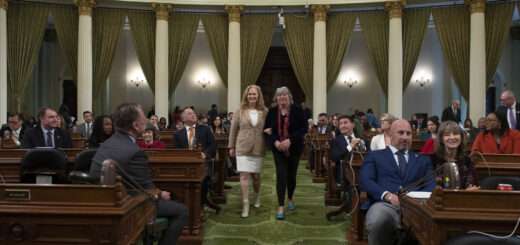Artsakh cultural heritage program canceled in Berlin after Azerbaijani campaign

By Paul Vartan Sookiasian
An in-person book launch program on the cultural heritage of Artsakh that was due to take place in Berlin Wednesday was abruptly canceled a day prior following a pressure campaign believed to have been pushed by the Embassy of Azerbaijan in Berlin. The event for the book entitled “Cultural Heritage of Artsakh: Armenian history and its traces in Nagorno-Karabakh” was organized by the German Council on Foreign Relations (DGAP) and the Konrad Adenauer Foundation (KAS).
In an e-mail, DGAP official Stefan Meister announced that “due to a massive campaign against the holding of the event… and a risk of escalation during the event, the management of DGAP has decided to hold the discussion purely virtually” because they “cannot guarantee the safety of guests and participants due to threats.”
In a response to an inquiry by CivilNet, Meister described the situation as a systematic campaign against the event organizers.
“The Azerbaijani embassy demanded I not use terms like ‘Armenian cultural heritage’ or ‘Nagorno-Karabakh.’ Wednesday they organized a demonstration in front of our institution and the letters we receive are getting more and more aggressive. It is obvious that most of the letters are orchestrated by the Azerbaijani Embassy, since the content is nearly the same as the letter from the Ambassador.”
According to Meister, some of the communication received included personal threats.
“We cannot guarantee the security of the visitors and I expect there will be an attempt to interfere with the event. “It is obvious that Azerbaijan tries to use the same practices it does at home, to cancel events and pressure people,” Meister concluded.
The International Society for Human Rights (IGFM) called the cancellation an attack by the Aliyev regime on freedom of assembly and freedom of expression in Germany.
“Not only are opposition voices being persecuted and fought in our own country, but now scientific discourse abroad is also being aggressively attacked,” criticizes the ISFM. It further asked: “Is Europe’s energy partnership with Azerbaijan more important than our freedom?”
In a petition addressed to the boards of DGAP and KAS, self-described members of Azerbaijani civil society, described by Meister as GONGOs [government-organized non-governmental organizations] made accusations that the event was “Islamophobic,” a common catch-all term used in Azerbaijani propaganda against Armenians. It also invoked conspiracy theories surrounding philanthropist George Soros and claimed the event would “increase mutual ethnic hatred and undermine peace talks.” They also accused the event of excluding the issues of Azerbaijani cultural heritage.
Azerbaijan’s embassy in Berlin is headed by Ambassador Nasimi Aghayev, who has made a name for himself as one of the most Armenophobic voices through his activity on social media. He has been accused of creating accounts for non-existent people and organizations to give the impression of wide support for his messaging.
According to Dr. Gurgen Petrossian, Chairman of the German-Armenian Lawyers’ Association, this is a further example of how “Azerbaijan has shown its disregard towards International Court of Justice (ICJ), which has ruled that the Republic of Azerbaijan shall take all necessary measures to prevent and punish acts of vandalism and desecration affecting Armenian cultural heritage. Instead, they demonstrate that they not only fail to protect the cultural heritage, but even suppress the discussion of it.”
For Dr. Hayk Martirosyan, a researcher at the Lepsiushaus Potsdam and a contributor to the book in question, the cancellation is a humiliation which sets a potentially dangerous precedent: “it allowed a scientific event to be turned into a political campaign. After this successful show of force, I am sure the same methods and tools of influence will be used against all subsequent events on this and similar topics.”
For his part, the Armenia’s Ambassador to Germany Viktor Yengibaryan tweeted of the situation: “It is up to our German friends to draw conclusions.” He said he was looking on the positive side of things, that, “by making this unnecessary noise against independent scientists and NGOs, much more people will be excited to participate in the event virtually.” He thanked the protesters for the marketing boost.







